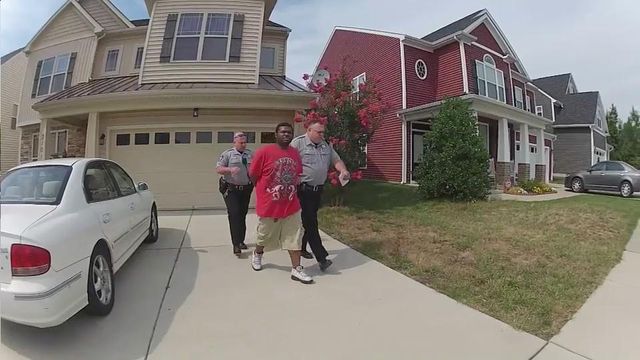Skipping court? Officers, bondsmen are on the hunt
Every day, hundreds of people skip court in Wake County, costing taxpayers' hundreds of thousands of dollars a year in lost time, resources and manpower to bring them in.
Posted — UpdatedWake County deputies serve about 2,500 warrants a year, many for those who don’t show up to court. But they aren’t the only ones tracking down the no-shows. WRAL News spent time with the officers and bail bondsmen on the front lines of the sometimes dangerous war to restore order in the courtroom.
“You don't know if they have weapons. You don't know if they've seen you. You don't know if they're waiting for you to come through the door,” said Wake County Sheriff’s Deputy Ashley Pierce.
Pierce has been with the sheriff’s office 12 years and has spent the past year and a half on the warrant squad. He says he catches, on average, one or two people a day.
“These are people that stay in trouble with the courts and the law enforcement, and they tend to try to hide from us, so we have to find them,” he said.
Lorrin Freeman, Wake County's clerk of Superior Court and newly elected district attorney, estimates, on average, 15 percent of people don't show up. On the day WRAL News spoke with her, 350 out of 2,000 were no-shows, or 17.5 percent.
“When these orders for arrest go out, somebody’s got to make sure these people are brought back to face the court system like they were supposed to do on their day in court,” she said.
Wake County Sheriff Donnie Harrison says finding those people takes manpower. About eight or nine deputies serve on his warrant squad, including Pierce, and all they do is serve warrants.
“We tie up a lot of time and money trying to serve failures to appear,” Harrison said. “Bondsmen can be a big help to us if they'll work with us, and of course we'll work with them.”
Bail bondsmen often pick up where law enforcement leaves off. A bondsman with Access Bail Bonding in Raleigh, who didn’t want his name used, allowed WRAL News to follow him recently as he tracked down clients who missed court.
“First I try to call them, contact them, see if they're aware that they missed court, try to find a reason of why they missed court,” he said. “If they don't make an effort to fix it or get a new court date, then I have to go out and start searching for them.”
Out of every five bonds, at least two or three miss court, the bondsman estimates, adding that it’s “very frustrating.” He tries to be selective about who he bonds out and makes sure to check the person’s criminal record and how many times the person has missed court. When he agrees to post bond, he makes sure the person has a co-signer, usually a relative, who can vouch for the person.
“I make a judgment call. This person deserves to be bonded, and they deserve a chance,” he said.
Chief Magistrate Judge Dexter Williams says the court system relies heavily on bondsmen.
“They're the only people in the criminal justice process that guarantees their work by putting up their money,” he said.
Williams spends time each day processing paperwork for people who don't show.
“Each time they miss court, each one of these little files has to go through numerous steps to get it back right,” he said.
Getting it right often means getting a ride to jail from an officer or bondsman. The bottom line, line enforcement officials say, is that people need to come to court.
“It certainly saves the citizens, the state of North Carolina, a lot of money if people come to court,” Williams said.
When people don't show up for court, by law, the judge doubles their bonds. Depending on whether the person skipped court on a misdemeanor or a felony charge, he or she can be sentenced to anywhere from 30 days up to eight months in jail for failing to appear.
• Credits
Copyright 2024 by Capitol Broadcasting Company. All rights reserved. This material may not be published, broadcast, rewritten or redistributed.






